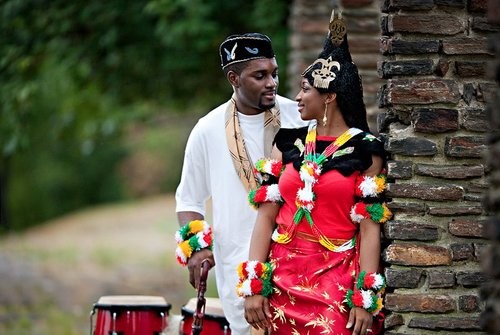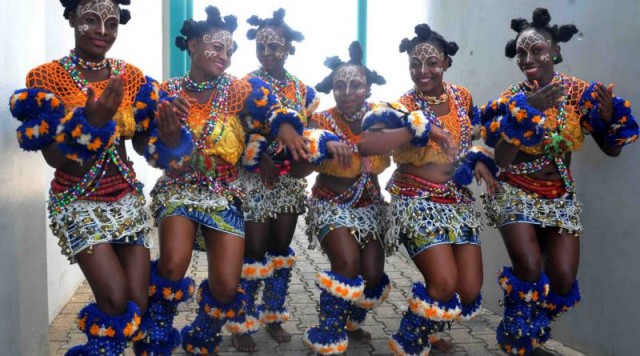
photo: travel.jumia.com
Have you ever wondered about the colourful traditional wedding ceremony of people from Akwa Ibom? Like all other cultures, there are some special rites so if you are planning on getting married soon and you are of this tribe, or marrying a beautiful Ibibio woman, prepare yourself to take these steps:
Ndidiong Ufok: To know the house
This is commonly known as the introduction or “knowing the in-laws”. The groom to-be visits his future bride’s family house to state his intention of marrying her. He normally makes this trip alongside a few men and wine/special drinks. The father of the bride may choose to accept or reject his proposal; if it is accepted, a second meeting is arranged to proceed with the marriage process.
Nkong Udok/Usong: Knocking on the door
Next, the man visits the future bride’s family again to formally express his readiness to marry their daughter and get that bride price checklist! This stage is common amongst different traditional groups such as the Yoruba and Igbo people but the bride price may differ. The man normally makes this journey with elder men in his family and a few alcoholic drinks; the specific bride price is negotiated and given to him to deliver on the day of the wedding or any agreed time in order to take his wife. The bride price list usually has items which will be useful to the bride’s immediate and extended family.
Uno Mkpo: To give something
This is the day that the gifts are delivered to the bride’s family and is recognised traditionally as a consideration of intention to marry the bride.

photo: pinterest.com
Usoro Ndo: Traditional Marriage
This is the most significant stage of the ceremony as the villagers get involved. The women and children in the vicinity openly make requests to the groom and his family which they are expected to comply with before they gain entrance to their in-law’s compound.
An array of local delicacies are served such as Edikang ikong, Atama, Edi tan, Ekpang nkukwo alongside some dance and entertainment. The bride eventually dances out with her maidens in full local costume, while the parents appear and asks the groom’s family to state their purpose of visiting them (again!) and officially present the groom.

photo: idonsabi.com
A fake bride may be presented to the groom and his family and they are to reject or accept the person that is unveiled. Finally, the real bride dances to meet her husband and this part ends with a dance which is the first activity they should engage in immediately after the ceremony. The bride may change into the traditional attire of the husband’s tribe if they are not of the same culture.
We love our culture-rich African traditional weddings!
